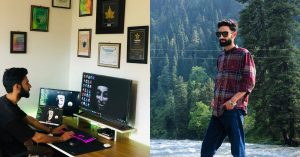How a Unique Approach Is Helping 2.2 Million Indian Children Overcome Adversity
Bengaluru-based NGO Dream a Dream is transforming the experience of education for millions of India's school-going through a life skills approach.
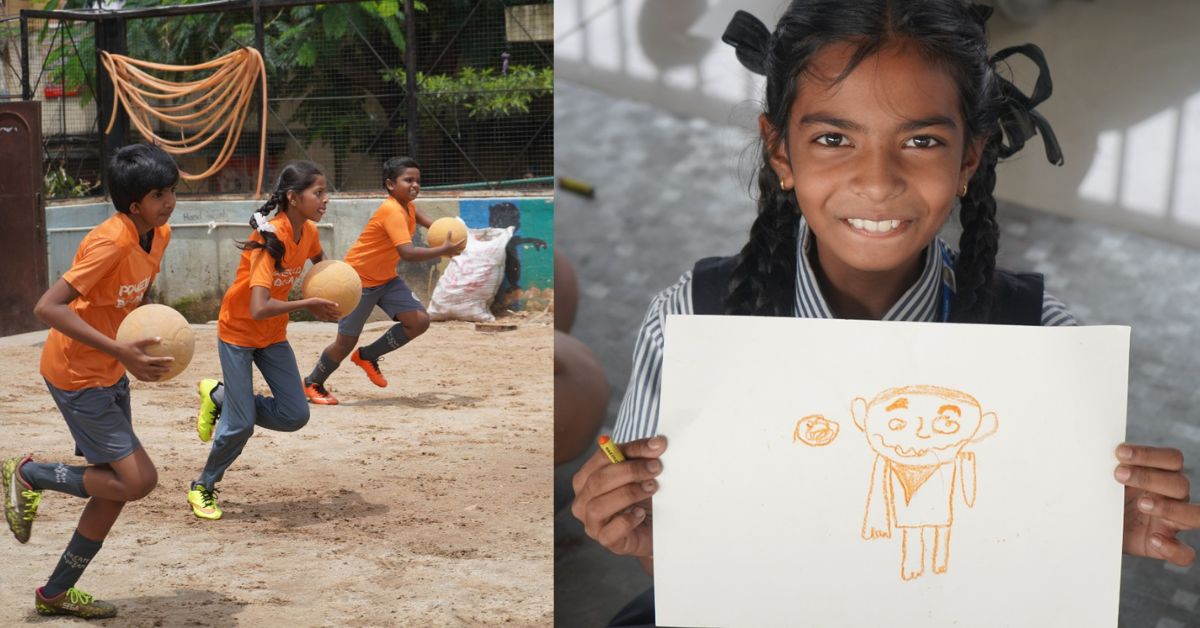
This article is part of #MakingSportWork, a series launched by The Better India and Sports and Society Accelerator. The series celebrates India’s independence with stories of heroes who have spent years working to improve lives around them through sports. Stay tuned for inspiring tales of those who are #MakingSportWork.
After his graduation, Bengaluru-based Vishal Talreja got a chance to visit Finland, where he noticed a significant emphasis on the idea of dignity of labour and the high quality of life that people enjoyed, irrespective of their background and the nature of their job.
“It got me thinking about my own upbringing and the caste-class system surrounding us. I wanted to go back to India and change the way we look at dignity here,” he says.
Upon returning to his homeland, Vishal decided to dedicate his weekends to meaningful volunteer work. He focused on assisting youth from underprivileged and vulnerable backgrounds where they were exposed to issues such as malnutrition, abuse, and exposure to crime at an early age. Education and life skills were not prioritised for this group, prompting him to offer his support.
Through various connections, he met a group of passionate people, all in their early 20s working in the IT sector in Bengaluru, Pune, and Delhi. Although they didn’t specifically know each other, they shared a common goal to build a roadmap that would give them a clear sense of purpose. Vishal and a team of 10 others established ‘Dream a Dream’ — a non-profit organisation dedicated to transforming the life experience of vulnerable children in Bengaluru.
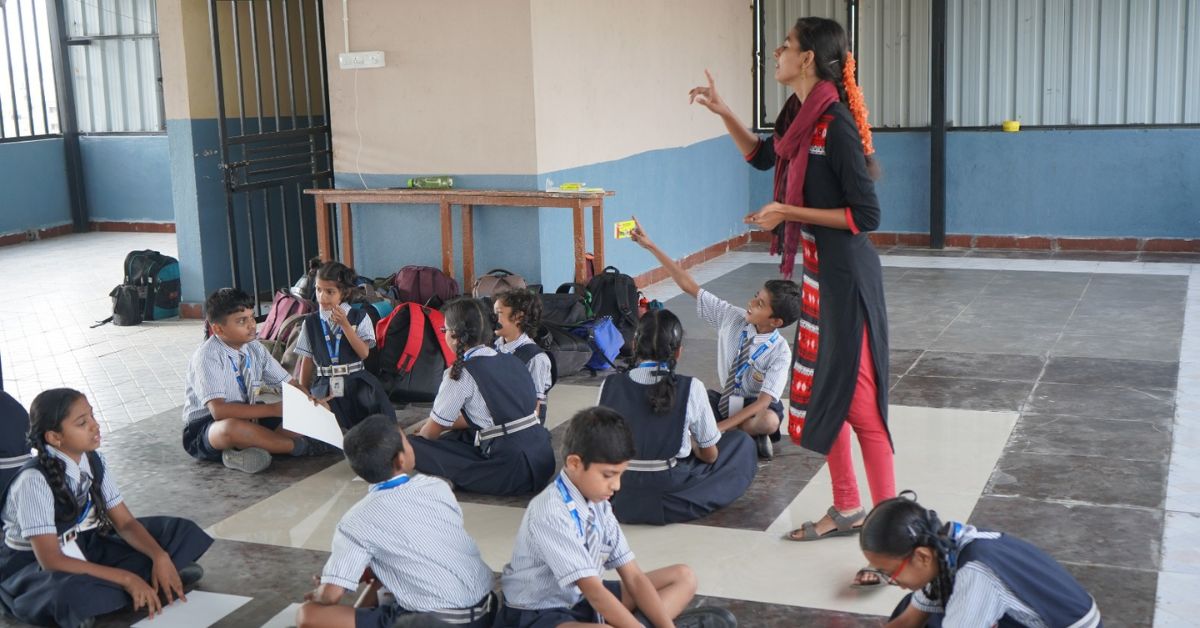
They started with an after-school programme in Bengaluru to teach essential life skills to children — such as teamwork, problem-solving, and critical thinking — utilising sports and creative arts as mediums.
What started as a weekend initiative has now evolved into a full-fledged organisation that spearheads life skills education in Indian public schools. “When we founded Dream a Dream, we never expected to become a national organisation transforming education for millions of children,” says Vishal.
Their work has expanded to six states including Karnataka, Delhi, Jharkhand, Uttarakhand, Nagaland and Telangana — all in partnership with the respective State Governments.
How we turned our dreams into reality
At first, the group began their work with a community of children affected by HIV, investing considerable time to bring joy and happiness in their lives. By 2001, they had also started working in a care home catering to these children.
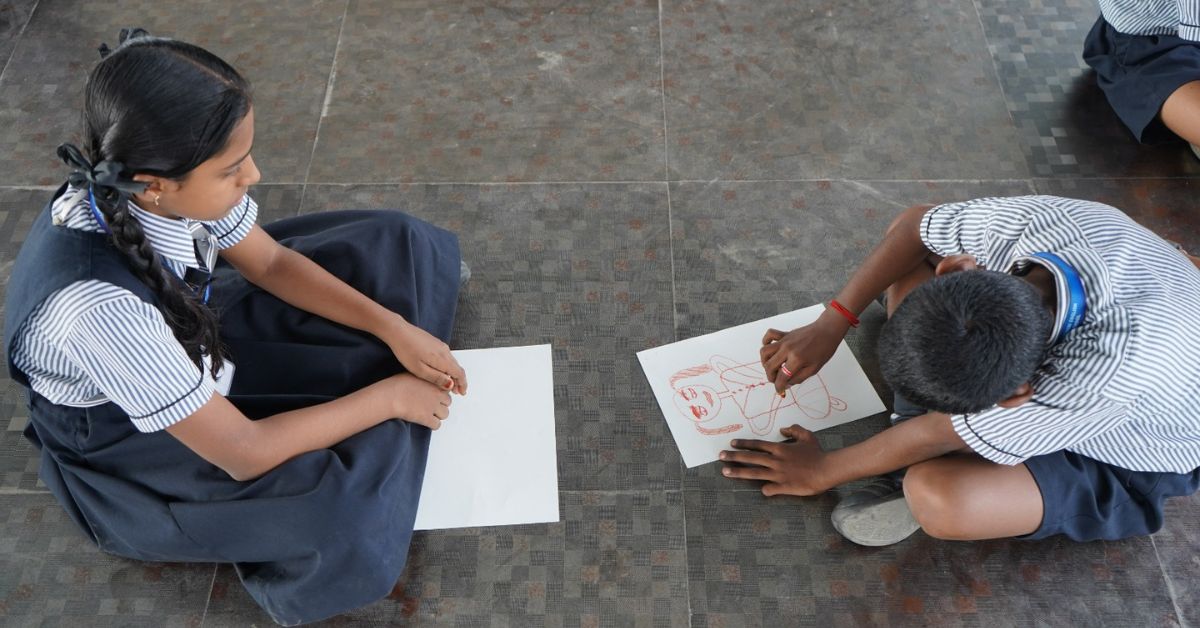
“At that point, Brinda (one of the founding members) was able to get two to three international volunteers, who organised a creative art therapy programme for the kids. It was a three-month weekend programme, and we saw a mind-blowing transformation among the kids. That was the first time we saw the impact of experiential learning in children,” says Vishal.
The art therapy programme encouraged them to widen their focus on empowering children from vulnerable backgrounds. Within two years, the organisation grew from 11 to 300 volunteers.
While working with care homes and orphanages, Vishal understood the complexities the kids faced. “Most of the care homes did great jobs to take care of the children’s basic needs and keep them off the streets but they didn’t necessarily prepare the children for life outside the home. A lot of the kids would end up returning to their care homes after a year or two of being outside post 18 years of age,” he adds.
During this period, the organisation integrated sports, arts, theatre, music, and various crafts into their weekly life skills education programme, using a unique life skills approach focused on the transformation of every child.
Pavithra KL, who is an alumnus of Dream a Dream, explains, “The programme is about helping children understand who they are, what are their strengths, what is their support system, and what are their dreams and aspirations.”
Dream a Dream programmes — such as Direct Impact, Systems Demonstration, and Building the Field — focus on implementing a life skills-oriented curriculum, pedagogy, new teaching methods, teacher training, and comprehensive assessments.
Under their ‘Direct Impact’ programme, the organisation employs a demonstrable model in both in-school and out-of-school learning spaces. It directly engages with 10,000 young individuals aged 8 to 23 each year, offering innovative education opportunities through sports and arts. This approach fosters crucial life skills like teamwork, decision-making, problem-solving, and critical thinking.
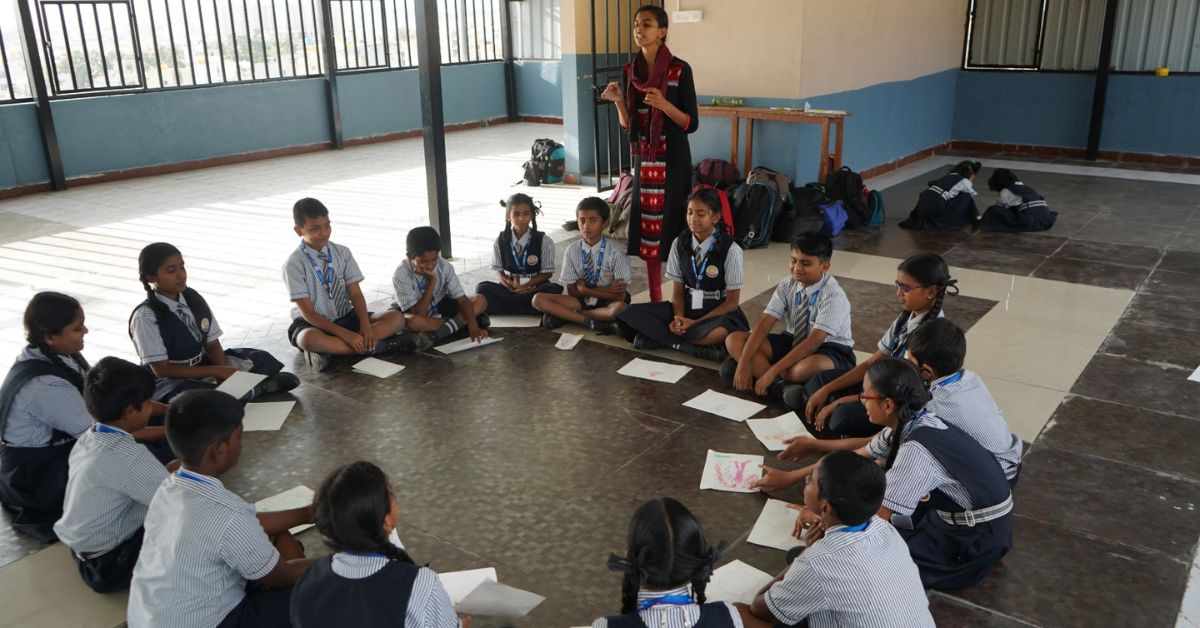
Additionally, the programme aids individuals aged 15 to 23 in preparing for an ecosystem that necessitates skills such as computer education, spoken English, communication skills, money management, and workplace readiness.
The ‘Systems Demonstration’ programme aims to transform public education systems in collaboration with the government. The organisation has effectively trained over 35,000 teachers and educators in the life skills approach. This training enables them to create safe learning environments within their current classrooms and expand their influence, concentrating on curriculum, teaching methods, and evaluations.
In addition, in partnership with state governments, the organisation is introducing new curriculums such as the Happiness Curriculum in Delhi, Anandam Pattacharya in Uttarakhand, a whole-child development pedagogical approach in Jharkhand and a Life Skills Curriculum in Nagaland and Telangana. The organisation also support the state education departments with new pedagogical approaches, teacher training and introducing new assessment frameworks.
The ‘Building the Field’ strategic approach is working to enable a mindset shift among diverse stakeholders in the learning ecosystem to bring in a collaborative approach to education, encompassing the broader community, decision makers, professionals in various fields, parents, teachers and other stakeholders.
The organisation intends to maximise impact through large-scale dissemination of real world research findings, engage in critical dialogues to listen to diverse narratives of success, amplify young people’s voices through collaborations and advocate for thriving as the purpose of education by weaving together people, places and voices supported by high impact research.
Spearheading change through sports
Dream a Dream works with both affordable private schools and State Governments. For instance, they partnered with the Delhi government and other nonprofit organisations to implement the world’s largest in-school Social and Emotional Learning (SEL) curriculum — the Happiness Curriculum — launched in 2018 by the Delhi Government to enhance students’ mindfulness and positive productivity. This initiative positively impacts eight lakh children in the national capital.
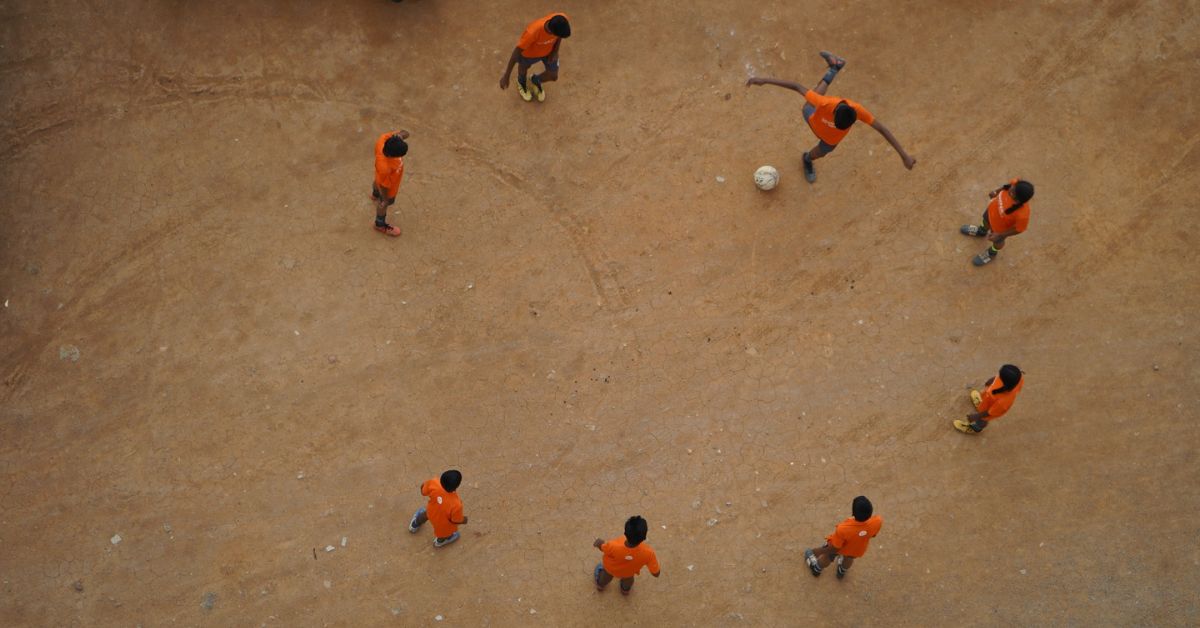
Pavithra, currently the associate director at the Innovation Lab, which creates skill development modules for young people, states that Dream a Dream offers children numerous opportunities to participate in various games like hockey, rugby, and table tennis. Recently, they have exclusively emphasised football.
“Football allowed us to include as many people as possible given its popularity. We could get many young people to play as it didn’t need a lot of equipment,” she says, adding that the football programme at Dream a Dream includes a weekly two-hour session.
Pavithra further explains that children typically join the programme at the age of eight, mostly in Class 4, and can select between the creative arts and football programmes, each lasting for seven years.
So far, the initiative has impacted over 2.2 million children across the country, she informs. Among them is yet another alumnus Ranjith H, who, at the age of 12, used to play kabaddi in school.
In 2008, driven by curiosity about rugby, the jersey, shoes, and weekly snacks offered to participants, he enrolled in the rugby programme. “At the time, my father would load or unload goods in the market whereas my mother worked in the garment industry. Because of financial constraints, we did not get good quality food at home. I mostly depended on the snacks provided by Dream a Dream,” he shares.
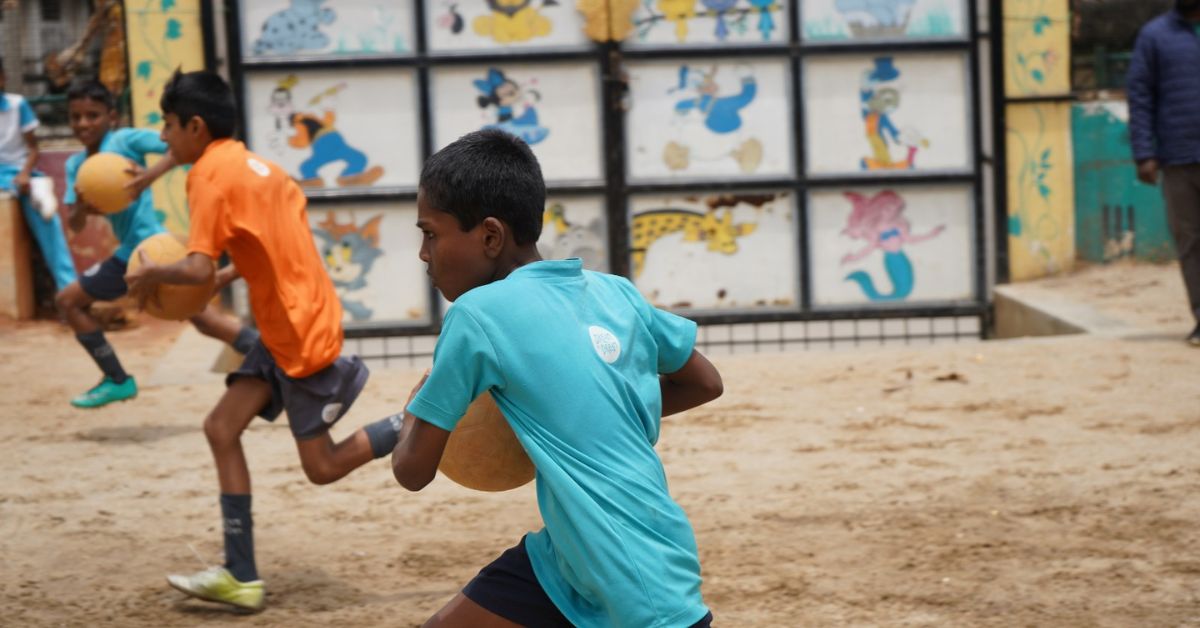
To support himself financially, he took on part-time jobs, including assisting in garment work and distributing newspapers. Despite the challenges he encountered at home, within a few years, Ranjith was competing at the national level for Karnataka. Travelling to rugby tournaments and meeting people from other parts of the country gave him the confidence to come out of his shell.
“That was the time I learned how to talk to people. I was not scared of playing rugby but I was scared of talking to people before!” he says.
Later on, Ranjith completed his Class 10 and went to college. “I realised how much sports can benefit a person. My sports certificate helped me to get into college through the sports quota. I worked part-time and completed my college,” he says. After college, Ranjith joined Dream a Dream as a football facilitator.
The fundamental goal of the organisation is to ensure that no child they work with is left behind. “Can we ensure that each and every young person feels a sense of support and is moving forward? Even if they have failed academically, are they thriving? Can they still look forward to a life with dignity?” asks Pavithra.
“As we are learning more about young people, we are working to re-imagine the purpose of education in the 21st century towards the idea of Thriving,” she remarks.
Edited by Pranita Bhat. All photos: Dream a Dream.
If you found our stories insightful, informative, or even just enjoyable, we invite you to consider making a voluntary payment to support the work we do at The Better India. Your contribution helps us continue producing quality content that educates, inspires, and drives positive change.
Choose one of the payment options below for your contribution-
By paying for the stories you value, you directly contribute to sustaining our efforts focused on making a difference in the world. Together, let's ensure that impactful stories continue to be told and shared, enriching lives and communities alike.
Thank you for your support. Here are some frequently asked questions you might find helpful to know why you are contributing?







